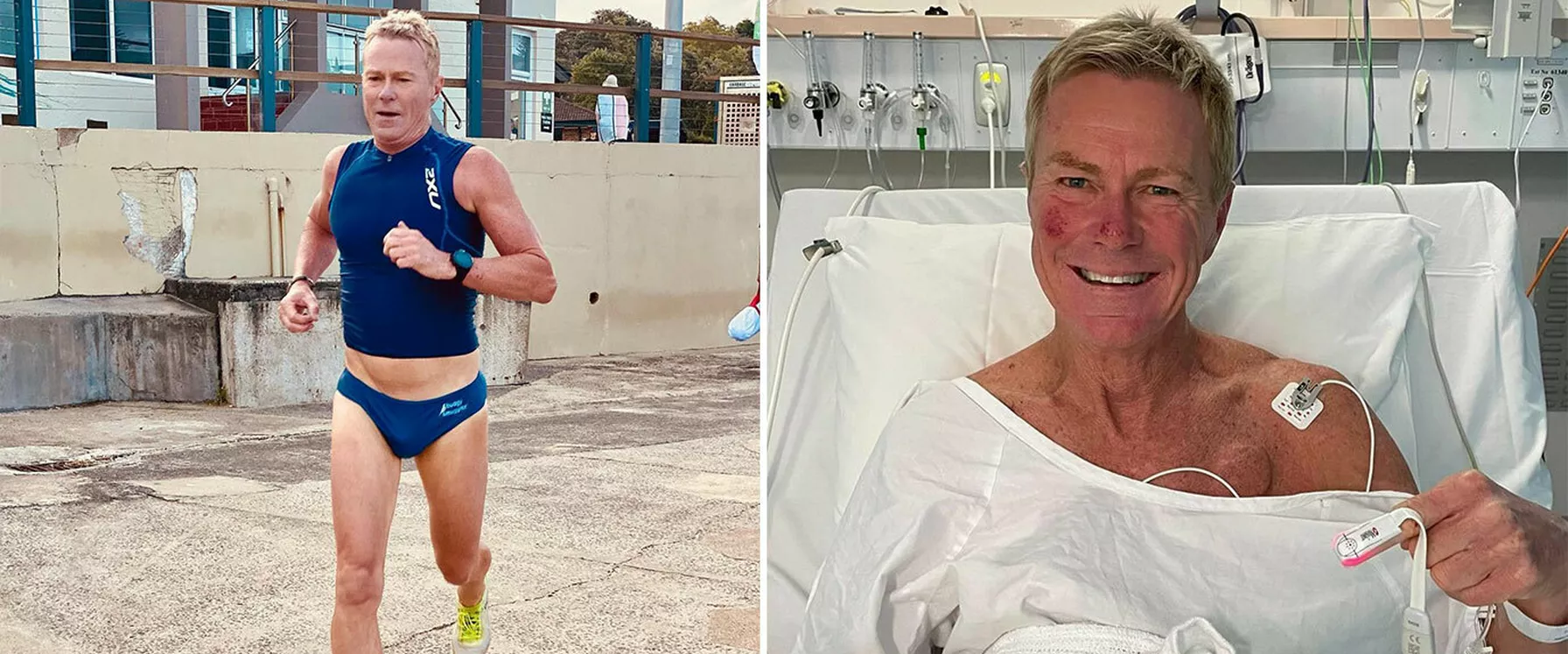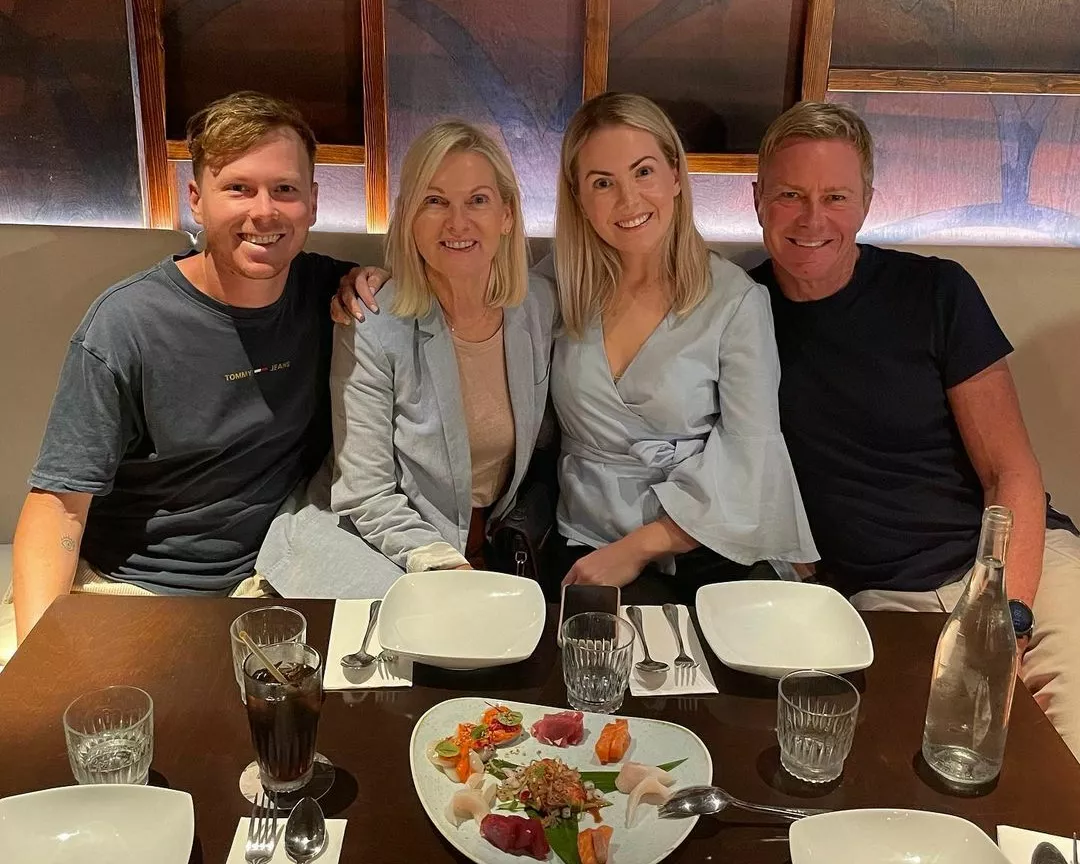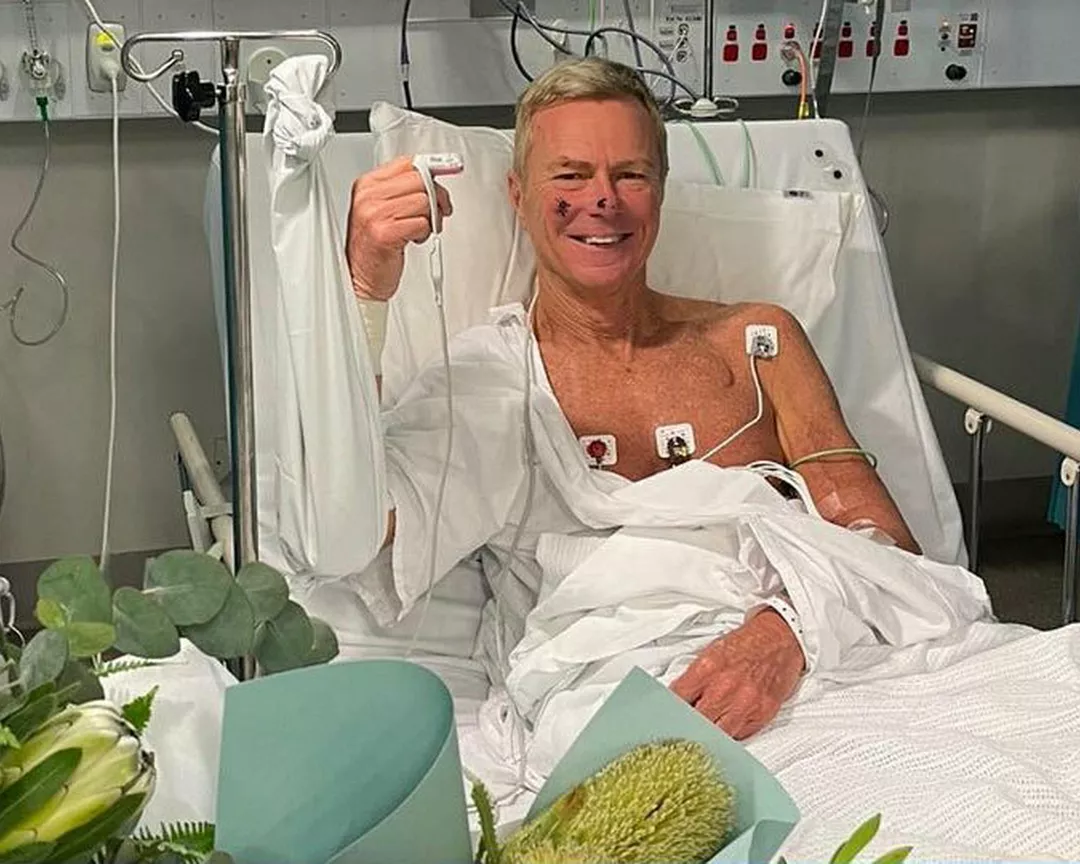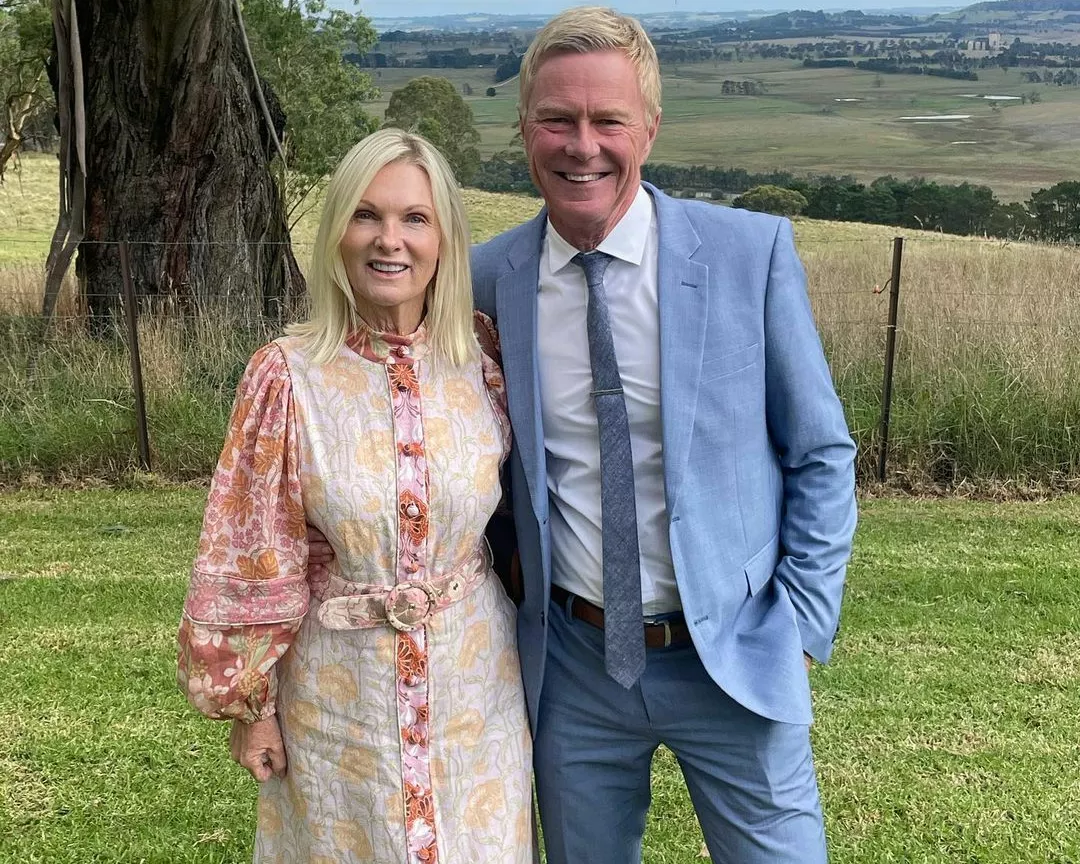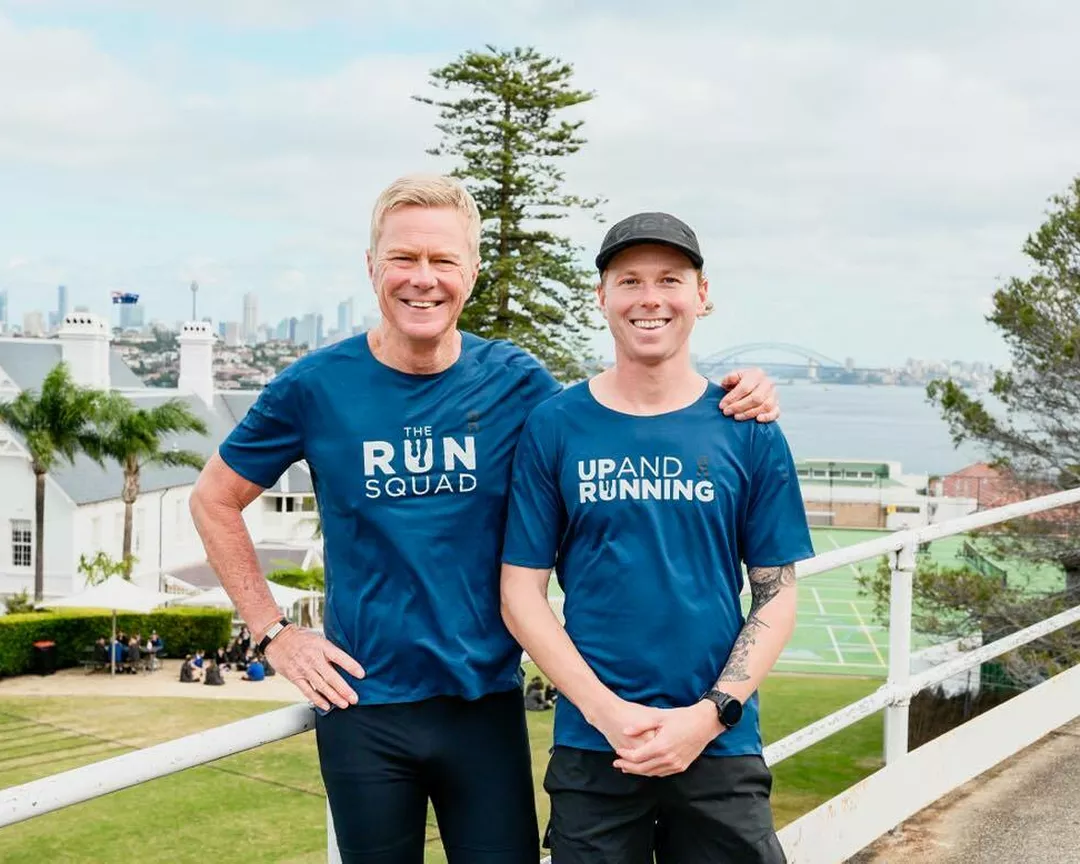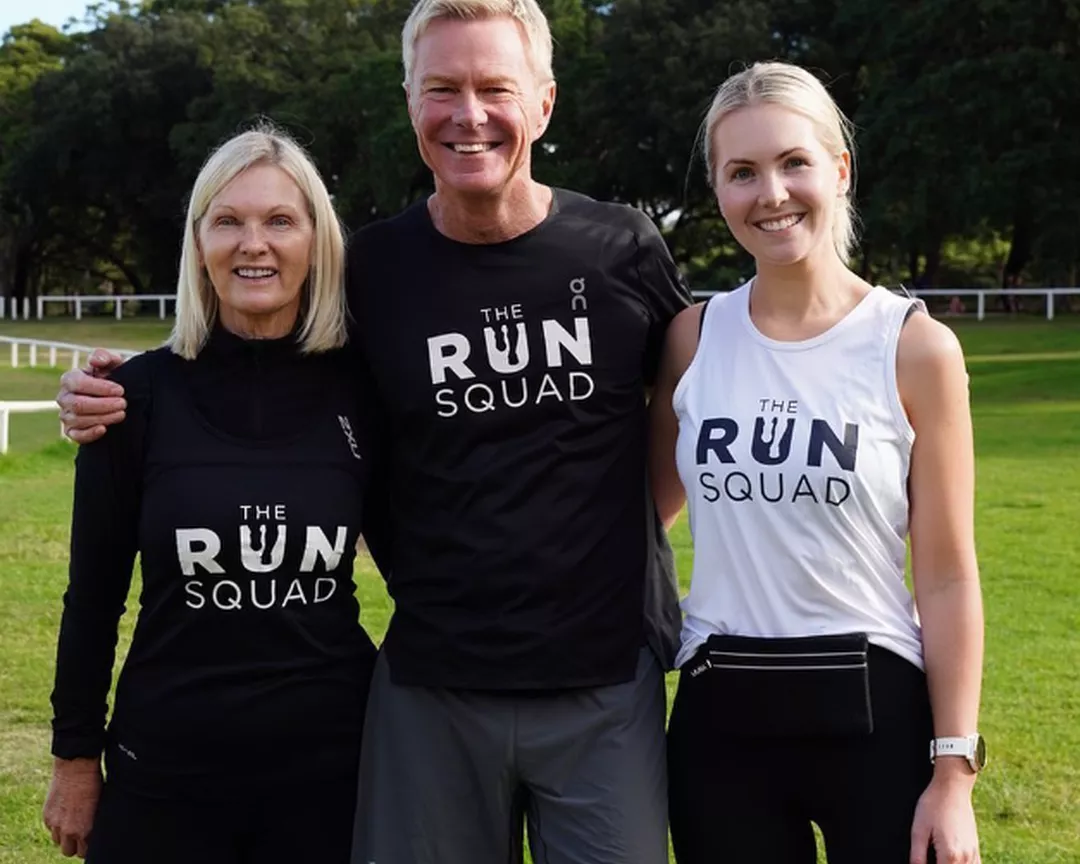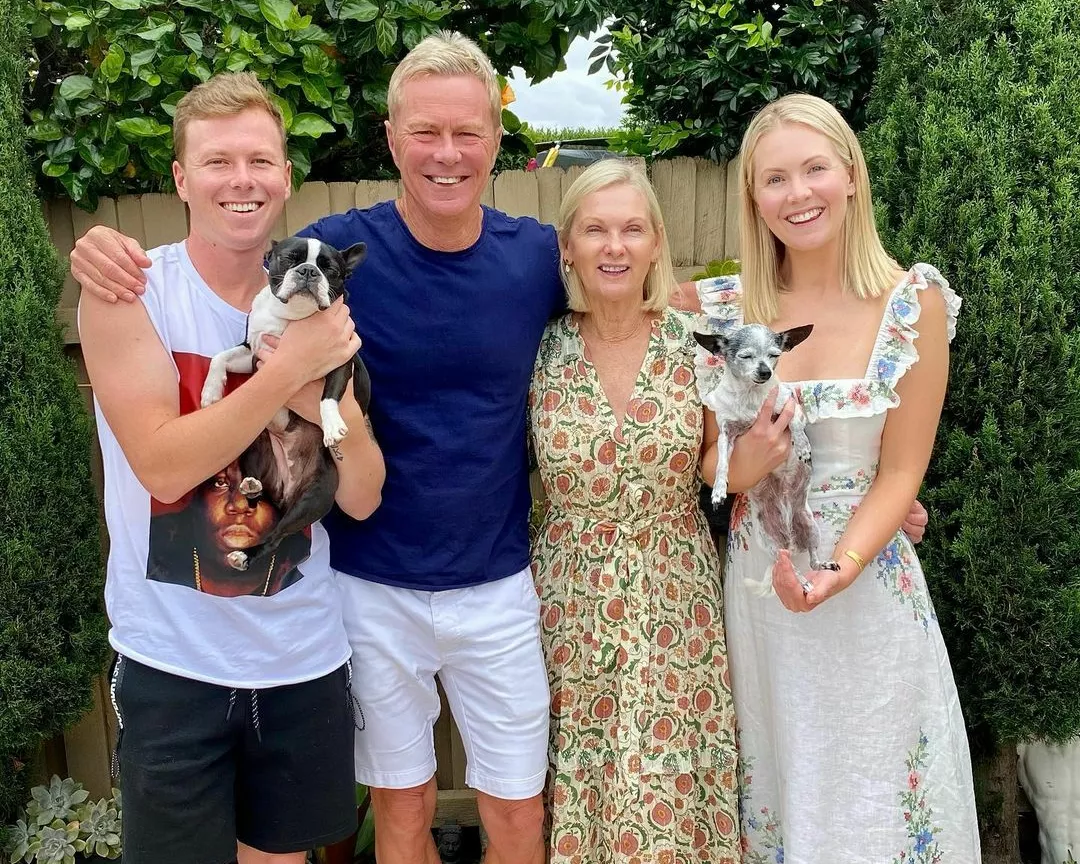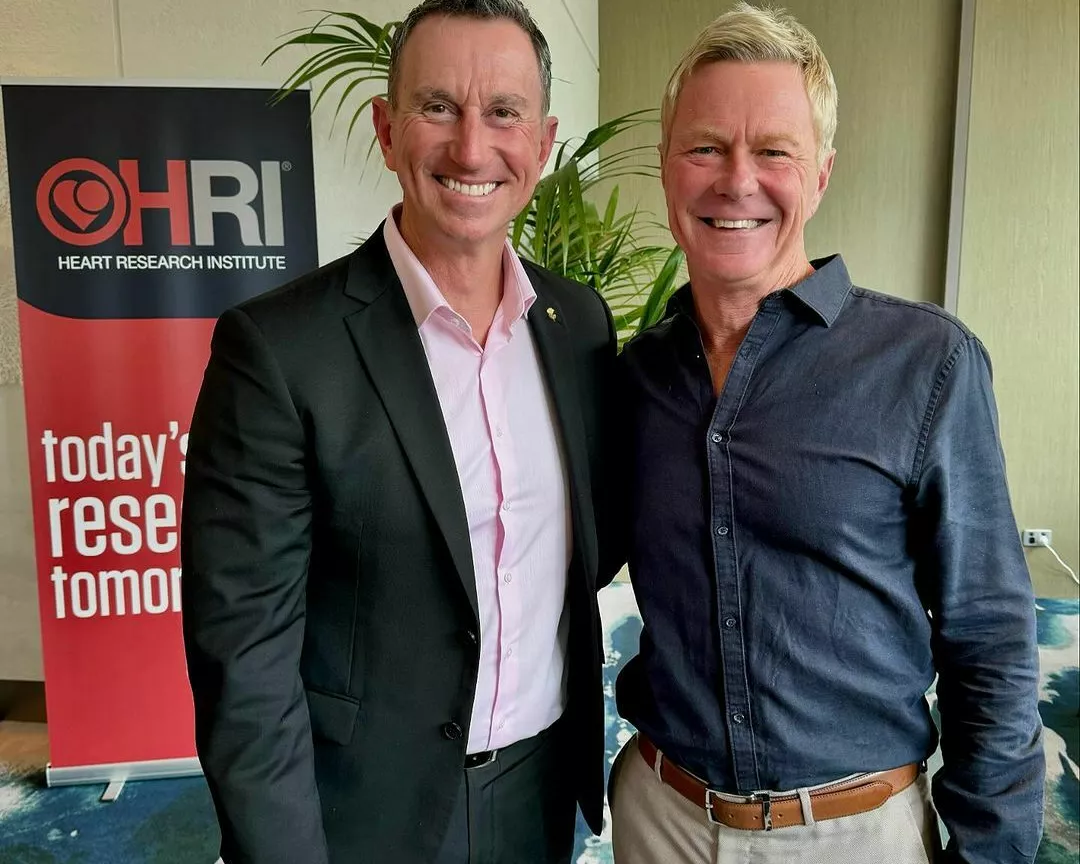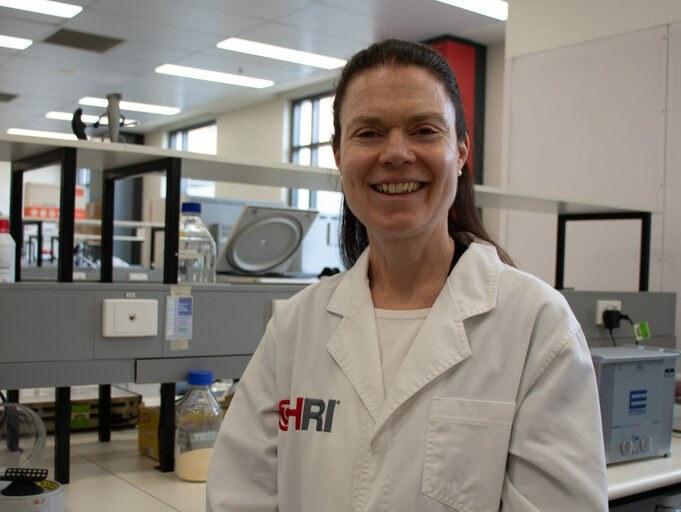Donate to research
Warren Williams was an extremely fit and healthy athlete when he discovered he had atrial fibrillation. Everyone was stunned. Twelve years later, during an early morning run session, Warren suffered a massive cardiac arrest. Somehow, he miraculously survived. This is his incredible story.
Warren had always been the epitome of health – a competitive athlete with over 40 years of experience in triathlon and distance running. His commitment to exercise was vital as he juggled his busy life as a dad, high school teacher, musician and coach.
Yet, when he asked his GP for a heart health check one fateful morning in 2010, the results would alter the course of his life forever.
Warren remembers that day vividly. He had taken his son, Jordan, to the GP as he was ill and decided it was time for a check-up of his own.
“I was 49 at the time and in peak fitness,” the Sydney dad of two shares. “I’ve never smoked, rarely drink alcohol and have never had a cup of coffee in my life.”
His doctor, a close friend and fellow runner, initially dismissed Warren’s concerns. But persistence won out. The check-up revealed atrial fibrillation (AF) – a shocking diagnosis for someone so seemingly healthy.
“I didn’t feel strange,” he insists. “But his expression told me something was seriously wrong. He told me I was in AF and needed to see a cardiologist immediately and stop training.
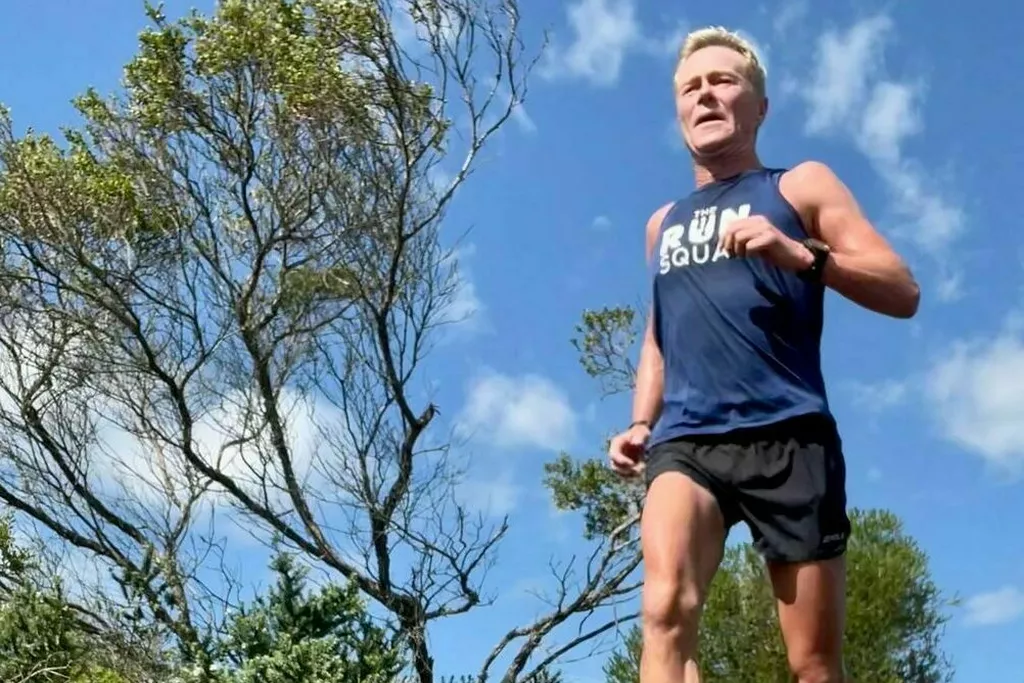
By that Friday, Warren found himself in intensive care, where doctors performed a cardioversion – a procedure to restore normal heart rhythm. While initially successful, the AF returned, leading to a gruelling period of drug therapy that drained the dad’s vitality.
“The drug therapy basically destroyed me,” he recalls. “I suffered terrible side effects. I went from being super active and super fit to not being able to walk."
Eventually, after a second opinion, he was fitted with a pacemaker to regulate his heart rate, especially at night.
“Their fear was that if my heart rate was getting that low when I was asleep, I might not wake up again,” Warren explains. “Life soon returned to normal, and I got back to training.”
But 12 years later, on 14 April 2021, during an early morning run session with his coaching squad, Sydney's Run Squad, everything changed. As he pushed himself up a steep hill, Warren suddenly collapsed.
“I got halfway up the hill and stopped to look back at the group,” he recalls. “As soon as I stopped, everything went completely black. I fell over, smashed my face into a wall and then fell backward.”
Warren with his family (left) and on performing on stage with his band, 'The Williams Brothers'
The rest of the group got to him as he regained consciousness, blood pooling around him.
“I came to after 30 seconds and felt totally fine. I thought I had just fainted. I had no warning signs, no pain, I just went down.”
Despite his protests against an ambulance and medical assistance, Warren’s wife Tracy picked him up and eventually took him to hospital.
Warren’s pacemaker revealed the horrifying truth: he had suffered a catastrophic cardiac event.
“They told me I’d had a massive cardiac arrest and gone into ventricular tachycardia (VT)," he says. “They also discovered I had ruptured the main descending artery – which collapsed in on itself and caused a blockage in my heart.
Doctors told me I should be dead. They said I shouldn’t have lived through it. Nobody lives through an event like that.
"Somehow I miraculously survived, probably due to my fitness, but that we will never know. I was told I wouldn’t be able to run again, ride a bike, sing on stage, and possibly not even work again."
The collapsed artery was repaired successfully through stent therapy, however this left doctors with the problem of not knowing how the cardiac arrest occurred. Did the artery collapse causing the VT arrhythmia or did the VT cause the artery to fail?
After days of debate and consultation with several cardiologists, it was decided that the safest outcome would be to replace Warren’s existing pacemaker with an ICD (implanted cardiac defibrillator).
This procedure was meant to be a straightforward changing of one device to another, however after hours of surgery doctors were unable to remove the wires from Warren’s existing Pacemaker and the operation was aborted.
Tracy remembers the harrowing moment when she received the news – and the trauma after Warren’s first surgery.
“When I called the hospital, they said I had to get there quickly. I went into shock,” she recalls, her voice trembling.
The drive to the hospital felt surreal. Upon arrival, the surgeon, covered in blood, delivered grim news.
“This is bad, really bad,” he said, clutching X-rays that revealed the extent of the damage.
Tracy struggled to process the possibility of losing her husband. The couple had been together since they were just 18 years old.
“I could have been a widow at 59,” she reflects, as she tried to remain strong for their children, Larissa and Jordan, throughout the long days waiting for updates. “But I would come home every day and cry. Deep down I was crumbling.”
Warren with his son Jordan, who is also a professional running coach (left) and Tracy and Larissa
Larissa, who has always been incredibly close to both her parents, took time off work to support Tracy during this nightmare.
“I insisted on going with mum for every visit,” she says. “We just never knew what news would come next.”
Warren spent 13 days in ICU, during which time doctors debated how to proceed. They ultimately decided to implant a defibrillator - a precautionary measure that left him feeling both relieved and anxious.
“I just went numb,” Warren admits, reflecting on the fear that gripped his family. “The hardest part was seeing them worried and unsure of what would happen next.”
Three years later, Warren has returned to running, a testament to his strength and tenacity.
“I can’t think about the moment I collapsed too much,” he says. “You just get on with life.”
Despite the odds stacked against him, he remains determined to raise awareness about heart health.
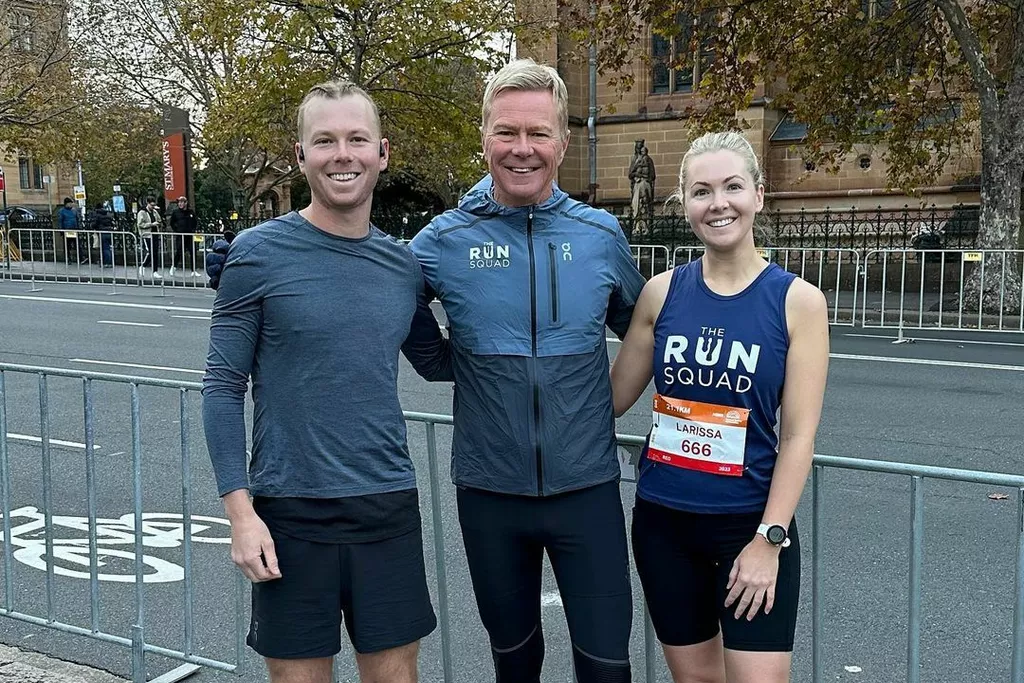
"AF affects people in many different ways. For some, everyday life and function becomes quite difficult, whereas in others, like myself, it can be a silent underlying condition with potentially life-threatening outcomes."
For Tracy, the experience has been a catalyst for change.
“When Warren was diagnosed, we lay in bed crying, thinking we were too young for this,” she recalls. Yet, his resilience has inspired her. “He defied the odds and got back to doing what he loves.”
Larissa, who had nightmares about her father’s potential fate, found her voice in this experience.
“Heart disease doesn’t discriminate,” she insists. “It could happen to anyone.”
Inspired by her father, she has also embraced running, channelling her fear into motivation.
“Dad always taught me to give everything a go,” she says, a sentiment echoed by Jordan who followed in his father's footsteps and is an athlete and running coach.
Donate to research
Warren with his famly (left) and former Olympian and fellow HRI ambassador Duncan Armstrong.
Together, the Williams family have become advocates for heart health, supporting research organisations like the Heart Research Institute (HRI).
They share their story as a reminder that life can change in an instant, but that resilience can lead to a new beginning. As they continue to run together, they carry with them the lessons learned from their journey – a testament to the strength of family, love, and the unwavering human spirit.
As Warren says: "Life is short, embrace every moment! Treasure every step, every day, every person who you call a friend, and most of all your family."
How is HRI helping?
HRI is conducting innovative research to develop new therapies for heart attack and cardiac arrest.
Our Heart Muscle Group, led by Prof Julie McMullen, is focused on research to improve function of the failing heart and protect it from complications such as AF.
Researchers from our Cardiovascular Regeneration group, led by Dr Carmine Gentile, are working on an alternative to heart transplants using 3D-printed ‘mini-hearts’. The new technology creates personalised ‘bio-inks’ made of a patient’s own cells. These bioprinted cells form a ‘patch’, like a band-aid, which can then be used to replace the damaged tissue cause by heart failure.
